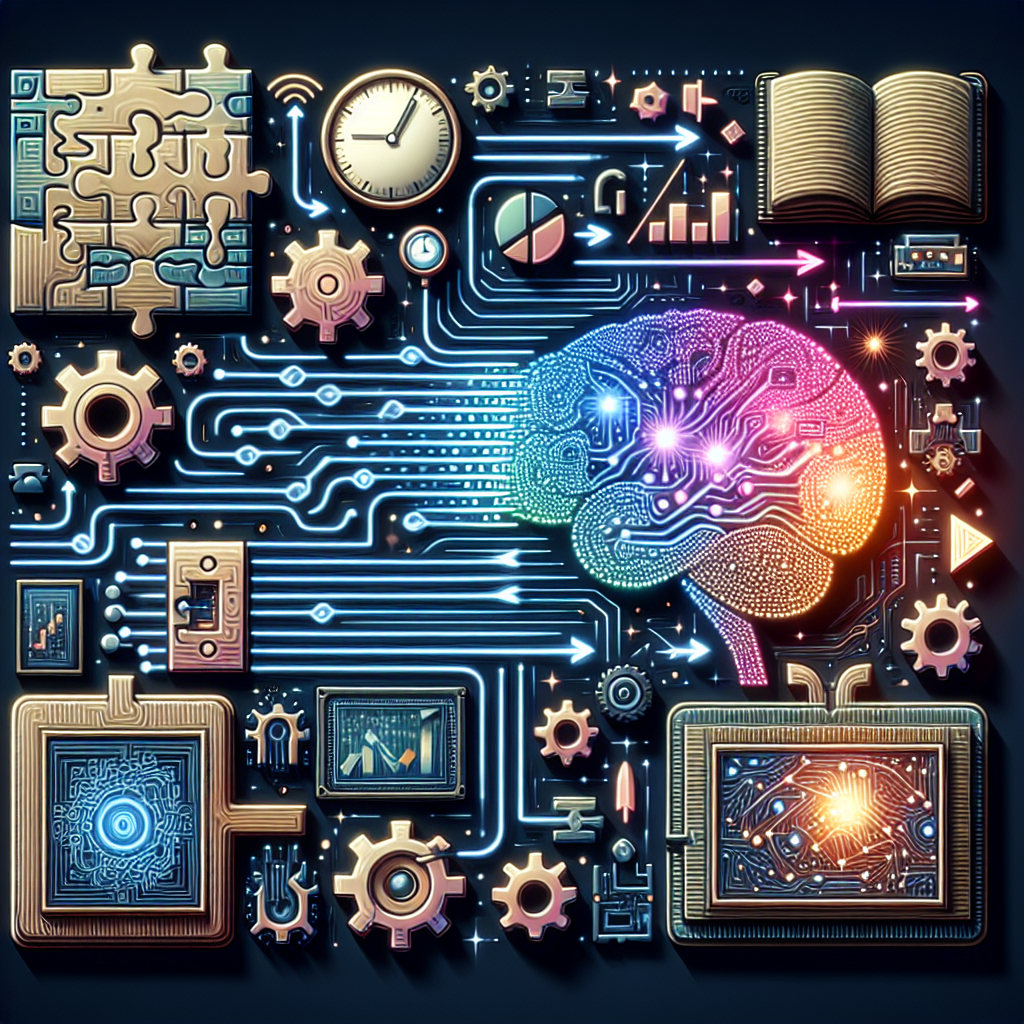In today’s fast-paced business world, maximizing project efficiency is crucial for staying competitive and meeting deadlines. One way to achieve this is through the use of artificial intelligence (AI) optimization. AI optimization involves using advanced algorithms and machine learning techniques to automate and improve decision-making processes in project management.
By leveraging AI optimization, project managers can streamline workflows, allocate resources more effectively, and make data-driven decisions to ensure projects are completed on time and within budget. In this article, we will explore the benefits of AI optimization in project management and provide practical tips on how to implement it successfully.
Benefits of AI Optimization in Project Management
1. Improved Decision-Making: AI optimization can analyze vast amounts of data to identify patterns and trends that humans may overlook. This allows project managers to make more informed decisions based on real-time insights, leading to better outcomes and increased project success rates.
2. Resource Allocation: One of the biggest challenges in project management is allocating resources efficiently. AI optimization can help project managers identify the optimal resource allocation strategy based on project requirements, team capabilities, and budget constraints. This ensures that resources are utilized effectively and project milestones are achieved in a timely manner.
3. Predictive Analytics: AI optimization can forecast project timelines, budget estimates, and potential risks by analyzing historical data and project performance metrics. This enables project managers to anticipate challenges and proactively address them before they escalate, reducing the likelihood of delays and cost overruns.
4. Automation of Routine Tasks: AI optimization can automate repetitive tasks such as scheduling, budget tracking, and risk assessment, freeing up project managers to focus on strategic decision-making and problem-solving. This not only increases productivity but also reduces the likelihood of human error in project management processes.
5. Continuous Improvement: AI optimization can continuously analyze project performance metrics and feedback to identify areas for improvement. By implementing AI-driven recommendations, project managers can optimize project workflows, enhance team collaboration, and drive continuous innovation in project management practices.
Tips for Implementing AI Optimization in Project Management
1. Define Clear Objectives: Before implementing AI optimization in project management, define clear objectives and key performance indicators (KPIs) to measure success. Identify specific pain points or challenges that AI optimization can address, such as resource allocation, risk management, or project scheduling.
2. Choose the Right AI Tools: Select AI tools and technologies that align with your project management goals and requirements. Consider factors such as scalability, compatibility with existing systems, ease of integration, and user-friendliness when choosing AI solutions for project optimization.
3. Train Your Team: Provide training and support to your project team to ensure they understand how AI optimization works and how it can benefit their daily workflows. Encourage team members to embrace AI-driven decision-making processes and leverage AI tools to enhance project efficiency.
4. Monitor and Evaluate Performance: Regularly monitor and evaluate the performance of AI optimization in project management to assess its impact on project outcomes. Collect feedback from project stakeholders, analyze key performance metrics, and make adjustments to optimize AI algorithms for better results.
5. Stay Up-to-Date: Keep abreast of the latest developments in AI technology and project management best practices to stay ahead of the curve. Attend industry conferences, participate in training programs, and collaborate with AI experts to leverage cutting-edge AI solutions for project optimization.
FAQs
Q: What are the potential risks of implementing AI optimization in project management?
A: While AI optimization offers numerous benefits, there are potential risks to consider, such as data privacy concerns, algorithm bias, and dependency on AI systems. It is essential to establish robust data security measures, ensure transparency in AI algorithms, and maintain human oversight to mitigate these risks effectively.
Q: Can AI optimization replace human project managers?
A: AI optimization is designed to augment rather than replace human project managers. While AI can automate routine tasks, analyze data, and provide insights, human project managers bring critical thinking, creativity, and emotional intelligence to project management. By combining AI capabilities with human expertise, organizations can achieve optimal project outcomes.
Q: How can small businesses benefit from AI optimization in project management?
A: Small businesses can benefit from AI optimization in project management by improving operational efficiency, reducing costs, and enhancing decision-making processes. AI tools can help small businesses streamline project workflows, allocate resources effectively, and compete with larger organizations by leveraging AI-driven insights and automation.
Q: What are some common challenges when implementing AI optimization in project management?
A: Some common challenges when implementing AI optimization in project management include resistance to change, lack of domain expertise, data quality issues, and integration complexities. To overcome these challenges, organizations should invest in training, establish clear communication channels, prioritize data governance, and collaborate with AI experts to ensure successful implementation of AI optimization in project management.
In conclusion, AI optimization offers tremendous potential for maximizing project efficiency in today’s dynamic business environment. By leveraging AI algorithms, machine learning techniques, and predictive analytics, project managers can streamline workflows, allocate resources more effectively, and make data-driven decisions to ensure project success. By following the tips outlined in this article and addressing common FAQs, organizations can harness the power of AI optimization to drive innovation, enhance collaboration, and achieve optimal project outcomes.

